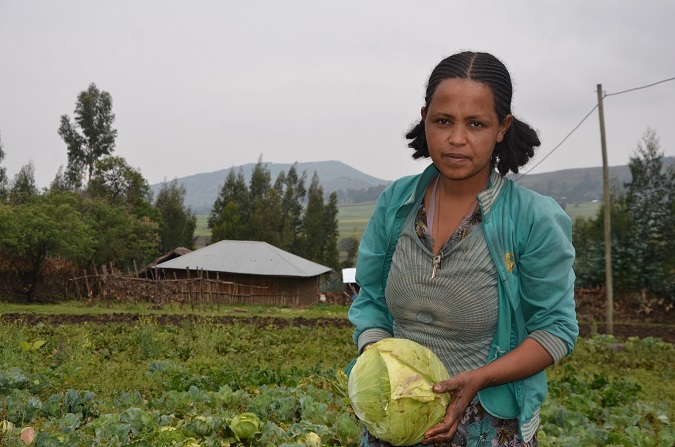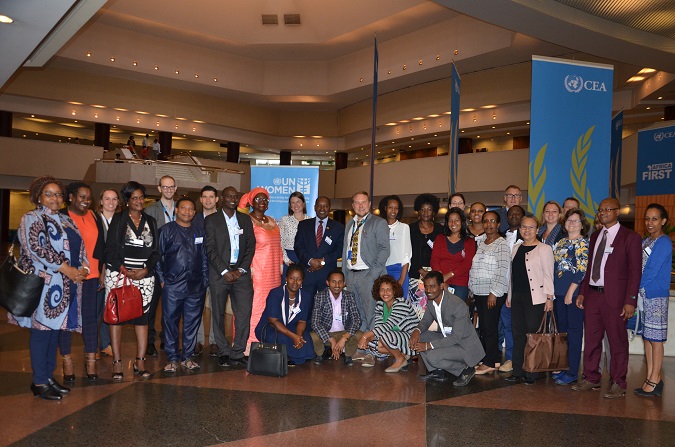East-African Countries Lead in the localization of the SDGs relating to Women’s Land Rights
Date:

Birtukan Fikadu, one of the beneficiaries of the UN Women in Oromia, Ethiopia. Photo: UN Women/ Fikerte Abebe
Research has shown that 70 to 90 percent of all wealth in Africa is generated through land, but only less than 10 per cent is owned by women. This staggering statistics highlight the crucial role that women’s land rights in Africa play in Women’s economic empowerment.
Currently, Ethiopia, Kenya and Tanzania have taken leading roles in demonstrating how these SDGs can be localized and integrated into the National Development Plans with support of the UN Women’s project ‘Women’s Land Rights and Tenure Security in the Context of the SDGs’. The policy recommendations from this UN Women initiative will guide the global process of localization and integration of SDG indicators 1.4.2 on rights to land and physical property, 5.a.1 on women’s rights to agricultural and and 5.a.2 relating to legal and policy frameworks on women’s rights to agricultural land; in national monitoring frameworks.
In August 2017, a workshop was organized at the Economic Commission for Africa (ECA) in Addis Ababa which brought together national stakeholders from the three countries. Inter-governmental dialogue between the East African governments is crucial for shared learning in gender-responsive land governance, policy dialogue and programmatic interventions.
At the opening of the workshop UN Women representative to Ethiopia, AU and ECA Ms. Letty Chiwara underscored the role of the 2030 Agenda for Sustainable Development in identifying land as central to poverty reduction and gender equality and achieving all Sustainable Development Goals.

The project manager Sami Frestadius emphasizes that “Women’s access to land and tenure security is a key human rights issue as well as an obstacle to women’s economic empowerment, gender equality and continental economic development in Africa”. He added that “for a cost-effective impact the best approach is to work at the policy level, which is the comparative advantage of UN Women as a UN organization ensuring that women and women’s rights groups have the needed enabling environment in the society”. This is the key to fulfil the global mandate of UN Women by supporting the member states in their commitments and creating space for the civil society in having a global impact in gender work.
The Universal Declaration of Human Rights recognizes the equal right to property and Food and Agricultural Organization (FAO) has estimated that the number of hungry people could decrease by 12 to 17 percent if women would have equal access to land.
UN Women works closely with partners and donors in achieving its mandate to economically empower women and girls with Finland being the leading development partner the women’s land rights initiative. Ms Tiina Byring-Ilboudo from the Embassy of Finland commented that ‘Finland is proud to be the global leader in supporting the advocacy for women’s land rights through this campaign with global mandate and is committed to support this piloting in Ethiopia, Kenya and Tanzania’.